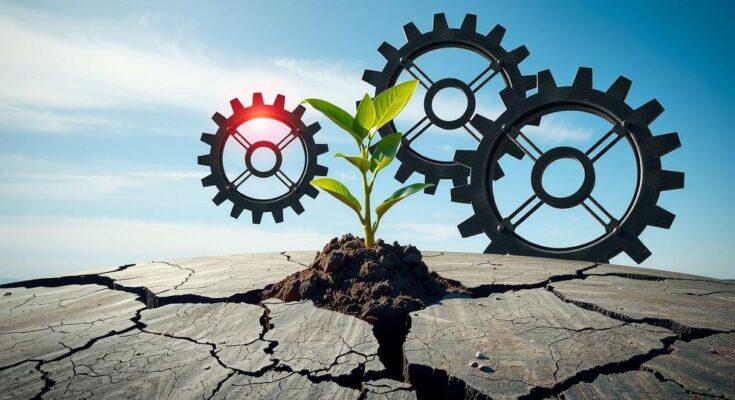Experts gathered at the Commonwealth Secretariat in London to discuss solutions for food security and climate finance, facing challenges of dwindling global funding. The roundtable featured insights from Nigerian leadership emphasizing agriculture’s role in the economy while acknowledging environmental challenges. Participants explored the complexities of integrating climate-smart agricultural practices with financial resources and highlighted the importance of accurate data and collaborative policies.
More than 80 experts and partners convened at the Commonwealth Secretariat in London to address the pressing issues of food security and climate finance amid declining global development funding. The Roundtable on Climate Finance and Food Security was organized by the Commonwealth Secretariat in collaboration with Nigeria’s Federal Ministry of Innovation, Science & Technology. The Commonwealth Secretary-General, Rt. Hon Patricia Scotland KC, emphasized the urgency of the situation, stating that both food security and climate finance are critical challenges that require immediate action.
In her pre-recorded remarks, Secretary-General Scotland thanked the Nigerian government for facilitating the dialogue, highlighting the link between access to nutritious food and the capacity to mobilize resources for climate resilience. However, she identified a shortfall in climate finance, expressing concern over inadequate support for vulnerable nations and the challenges posed by existing rules in development financing.
Chief Uche Geoffrey Nnaji, Nigeria’s Minister of Innovation, Science and Technology, underscored the importance of agriculture to Nigeria’s economy, which accounts for 25% of the GDP and employs 70% of the workforce. He discussed the nation’s significant agricultural strengths, including its leadership in cassava production, yet acknowledged the substantial challenges faced, such as deforestation in the south and desertification in the north.
The discussions revealed that agriculture alone does not equate to food security, noting the necessity of crop nutrition. There were concerns raised about the expansion of tobacco farming in East Africa, highlighting the complexity of the interrelations among climate change, land use, health, and nutrition.
Participants split into smaller groups to discuss how to integrate climate-smart agricultural practices with global financial resources. They deliberated on the complexities of carbon credits and the need for a broader perspective on sustainable agricultural practices to build trust necessary for financing.
One delegate from Kenya stressed the need to communicate effectively about the importance of carbon credits while another from India suggested adding information on soil quality to food labels as an incentive for better agricultural practices. The need for cohesive government policies and cooperative efforts to improve food security systems was emphasized, along with the necessity for accurate data to access climate financing.
Digitalization was acknowledged as a vital strategy for scaling climate-smart agricultural solutions. However, there is a recognized need for enhanced capacity-building initiatives to improve data coordination among countries, forming a national framework for effective data exchange and reducing discrepancies in national statistics.
The outcomes from the roundtable advocated for integrated approaches to national and continental food systems, emphasizing the importance of enhancing value chains rather than relying on fragmented solutions. Discussions also focused on improving soil management, irrigation systems, storage facilities, and accurate data collection regarding weather patterns, production, and post-harvest losses. Market access and equitable, gender-responsive climate finance were also integral topics of concern.
The roundtable at the Commonwealth Secretariat underscored the urgent need to address the intersection between food security and climate finance. Experts advocated for integrated and holistic approaches to enhance agricultural practices, improve data collection, and support vulnerable nations in accessing adequate climate financing. They emphasized the need for cross-departmental cooperation and digital solutions to strengthen agricultural resilience amidst the ongoing food and climate crises.
Original Source: thecommonwealth.org




